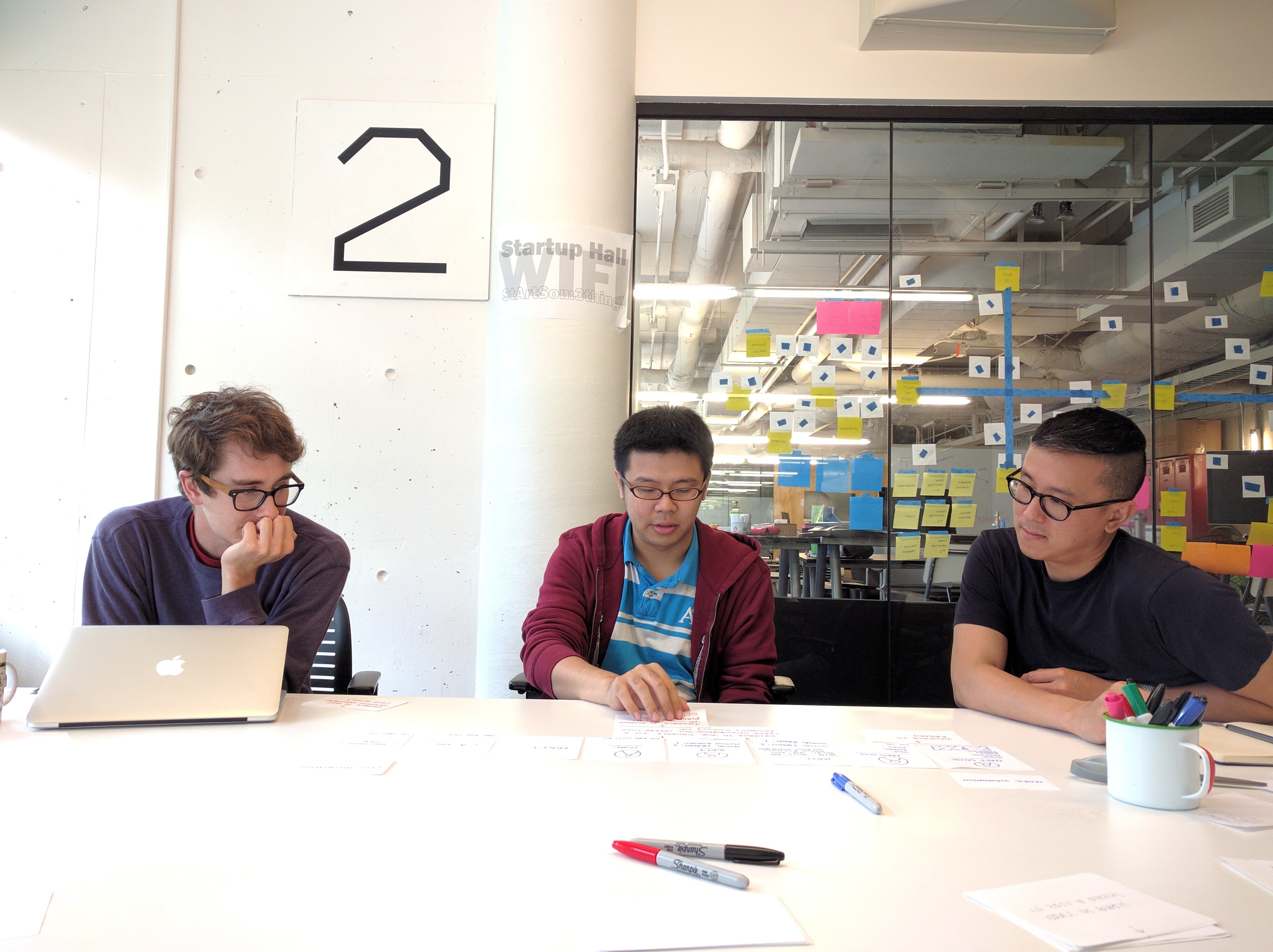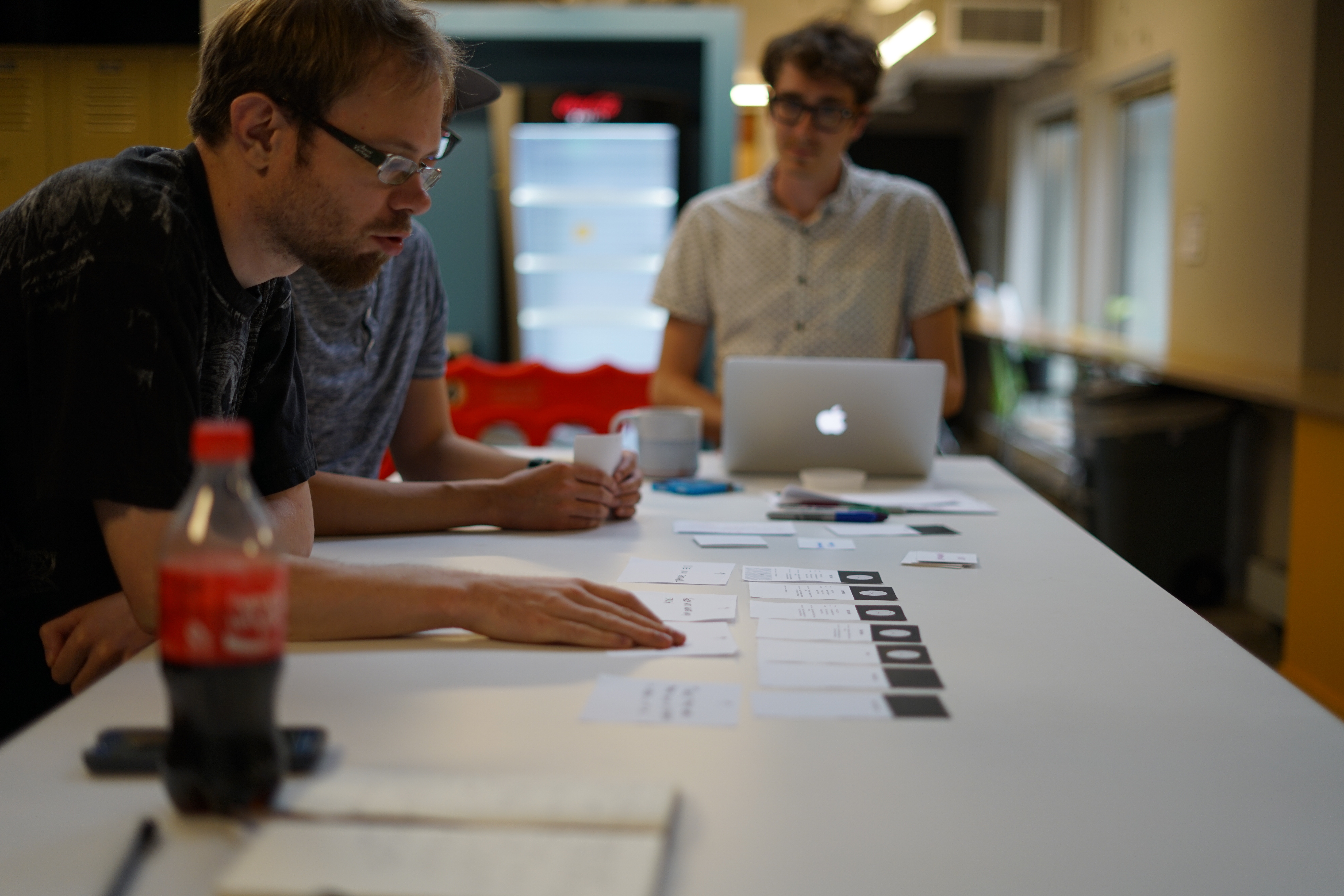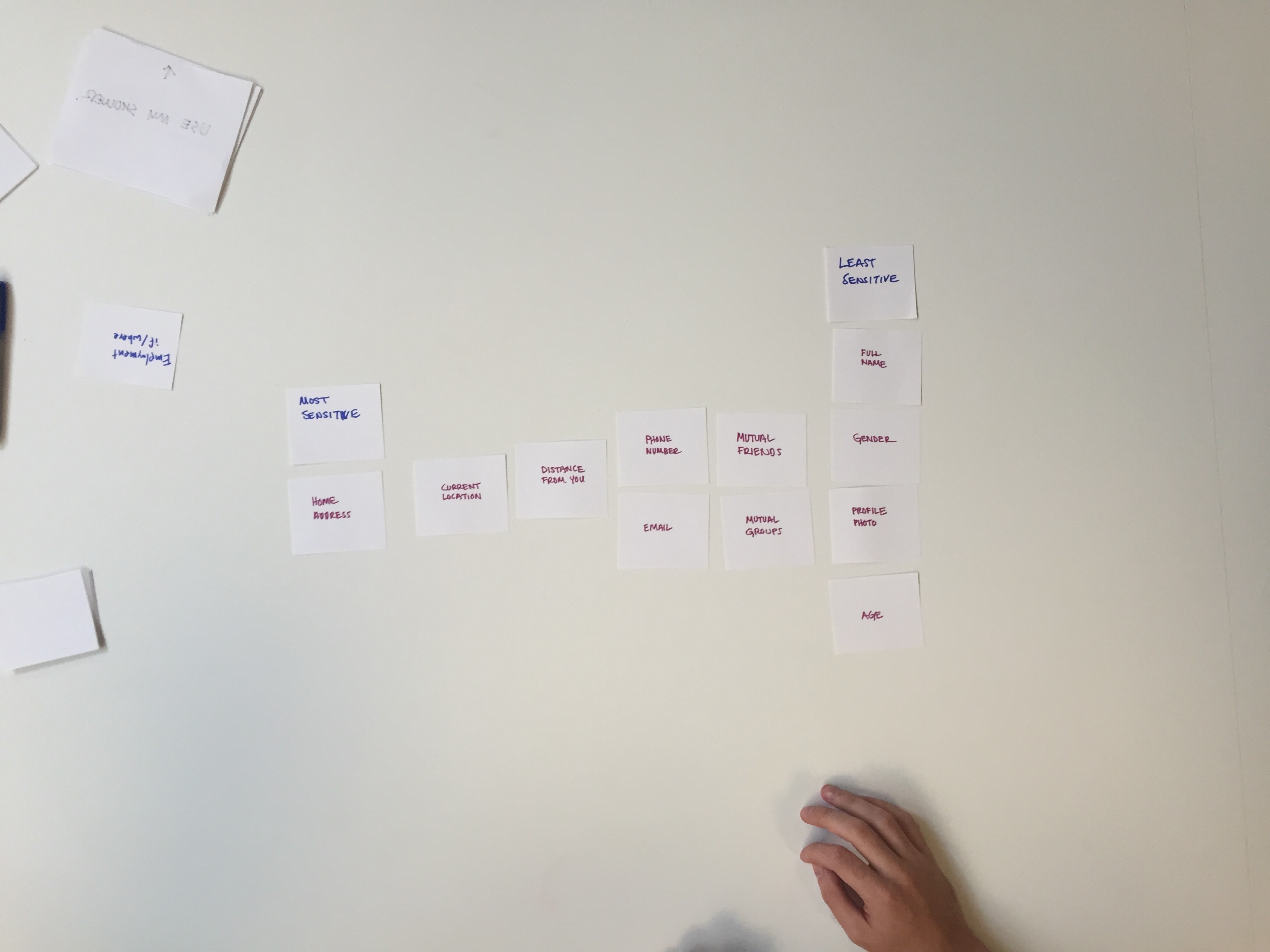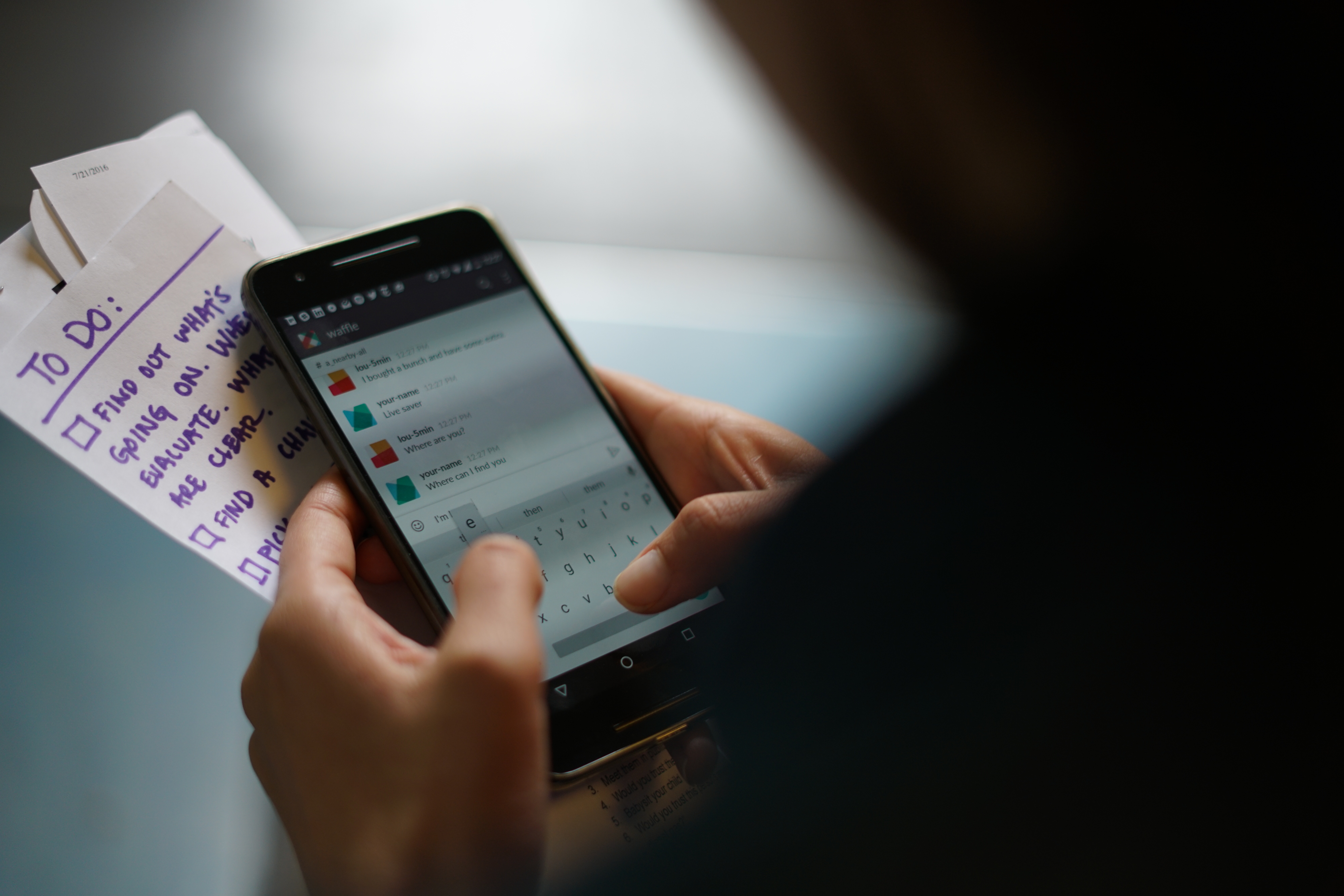week 5 - prototyping
Schedule
Monday
Team consultation with the Safe Walk team
In the team consultation both our team and Safe Walk shared and gave feedback on our prototyping plan. The Safe Walk team surprisingly had a similar direction of a location based social application. Part of the feedback we received was to consider if our design could belong to an existing social platform. Additionally, they had difficulty understanding how the design related back to our topic. We responded to the feedback by discussing as a group how we could incorporate prototyping activities that could better evaluate and clarify our thinking on how our concept would work in a disaster scenario. We also discussed how which existing social platforms might be integrate well with our design.
After class we piloted our scavenger hunt and profile card sort activities with a classmate.

Tuesday
Development of a natural disaster based prototyping activity
We modeled our communication tool concept using Slack. During the study our participant was asked to perform a scavenger hunt style activity using our prototype as their only means of of communication.
Wednesday
Presentation of our prototyping methods and research plans
Thursday
Updated our prototyping research activity protocols.
Friday
Conducted our scavenger hunt and user profile card sorting activities with two participants.
Sat/Sun
This weeks goal
We created three prototypes to evaluate our research questions and hypotheses. We wanted to uncover barriers for users and better understand key features that set our platform apart from others that already exist on the market.
Prototype 1 - Privacy & Trust
Research Question + Activity Summary
Is there a balance between information that people are comfortable disclosing and information that is required to evaluate trustworthiness?
-Evaluation of example profile page examples under different contexts of use
-Card sorting by personal information sensitivity and importance to evaluate trust
-Exit interview
Participant Observation




What we saw
Information about mutual friends is great for building trust, and sharing this information doesn’t compromise privacy. Personal information is less important when evaluating crowd-sourced information.
Why this is important and what we plan to do about it
Allow for a public and private profile, and include mutual friends in the public profile. Channels that are only information seeking should display only public user profiles.
Prototype 2 - Supply & Collaboration
Research Question
How can we improve resource and information sharing within a local community & where do existing tools fall short in collaborative decision making?
Activity Summary
A group-based planning and supply activity. A group of 4-6 people will be asked to coordinate a camping trip. In the pilot version of the activity, the group was asked to complete this task with one member acting as the group leader. The leader was given a short checklist and asked to document the planning process using pen and paper.
In the next round of this activity, the group will be asked to collaborate via a chat tool and use a shared Google doc for note taking.
-Collaborative group activity
-Group debrief
-Exit interview
Participant Observation


What we saw
With remote resource planning, there are lots of small bits of information that need group consensus or multiple individual responses.
Why this is important and what we plan to do about it
Provide a simple list feature directly tailored to remote collaboration with affordances for achieving consensus.
Prototype 3 - Location-Based Group Chat
Research Question + Activity Summary
Do individuals feel more comfortable requesting favors from strangers in close proximity to strangers that are further away?
-Individual scavenger hunt activity
-Think aloud
-Exit interview
Participant Observation



What we saw
People prefer reaching out to friends and neighbors before strangers when looking for help. People are more willing to share personal information, such as their current location, in the event of a crisis.
Why this is important and what we plan to do about it
Highlight strong and loose connections that are nearby in addition to showing strangers. Hide people’s current location in all cases, unless the user gives explicit permission (such as in a closed group of friends or crisis).
Moving forward
In the coming weeks, we plan to do the following tasks, in this order:
-Wireframes & feature refinement
-User Testing
-Hi-fidelity Prototype
-User Testing
-Refinement
-Video
-Presentation